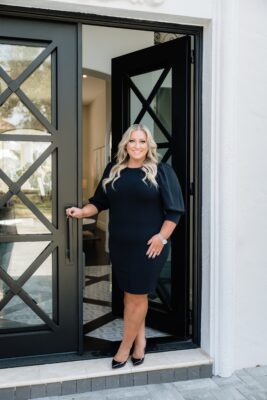
If you’re planning to move to Florida—especially to sought-after areas like Winter Garden, Windermere, or Lake Nona—there’s a good chance you’ll encounter something that’s very common across the Sunshine State: homeowners associations, or HOAs.
Whether you love the idea of a well-manicured community or feel hesitant about rules and dues, understanding HOAs is key to making a smart move. In this blog post, we’ll break down what HOAs are, how they work in Central Florida, and what buyers should consider before purchasing a home in an HOA-managed neighborhood.
What is an HOA?
A Homeowners Association (HOA) is a private organization that manages a community of homes—this could include single-family homes, townhouses, or condos. HOAs exist to preserve property values, manage shared amenities, and enforce community rules known as Covenants, Conditions & Restrictions (CC&Rs).
In Florida, particularly in newer developments like Horizon West and Clermont, HOAs are almost standard. Most master-planned communities rely on them to maintain a consistent appearance and handle shared responsibilities like landscaping, pest control, and even security.
What Do HOAs Typically Cover?
Every HOA is different, but many in the Orlando metro area cover services such as:
-
Landscaping & Lawn Maintenance
-
Trash Pickup & Pest Control
-
Access to Community Amenities (pools, fitness centers, playgrounds, etc.)
-
Exterior Maintenance for Townhomes/Condos
-
Security Gates or Patrols
-
Reserves for Repairs and Improvements
The monthly or quarterly HOA fee varies depending on the neighborhood and what’s included. In luxury communities like Isleworth in Windermere or Laureate Park in Lake Nona, you can expect more extensive amenities—and therefore higher dues.
The Pros of Living in an HOA Community
Many Florida homeowners actually prefer living in HOA neighborhoods because of the convenience, consistency, and access to shared amenities. Some top benefits include:
-
Curb Appeal: Well-maintained landscaping and cohesive design standards keep the neighborhood looking great.
-
Amenities: From resort-style pools to community events, HOAs often bring neighbors together.
-
Property Value Protection: Rules help prevent unsightly conditions that can hurt resale value.
-
Pest Control & Maintenance: Routine upkeep is typically handled, which saves time and stress.
In communities like Winter Park, Dr. Phillips, and Maitland, these benefits can make a big difference in quality of life.
The Cons of HOAs in Florida
Of course, there are trade-offs. Some of the most common concerns buyers have about HOAs include:
-
Fees: Monthly dues can add hundreds of dollars to your housing budget.
-
Restrictions: Want to paint your house a bold color or park a boat in your driveway? Some HOAs may say no.
-
Penalties: Violating rules could result in fines, warning letters, or even legal action in extreme cases.
This is why it’s important to review the HOA documents before closing on your home.
What to Look for in an HOA Before You Buy
Before falling in love with a home in an HOA community, take a close look at:
The CC&Rs – Are there any rules that don’t align with your lifestyle?
The Fee Schedule – Are there any upcoming increases or special assessments?
The Reserve Fund – Is there enough saved for future repairs?
The Board – Is it active, responsive, and homeowner-led?
Your real estate agent should help you gather this information and walk you through any concerns before your purchase is final.
Should You Buy a Home with an HOA?
For many buyers in Central Florida, an HOA community is a great choice—especially in neighborhoods where lifestyle perks and visual harmony are a priority. But it’s not a one-size-fits-all answer. If you value more freedom and fewer rules, you may prefer a home outside of an HOA, though those are becoming harder to find in newer parts of Orlando.
The key is to ask the right questions up front so you know exactly what you’re getting into—and whether the value matches your goals.
